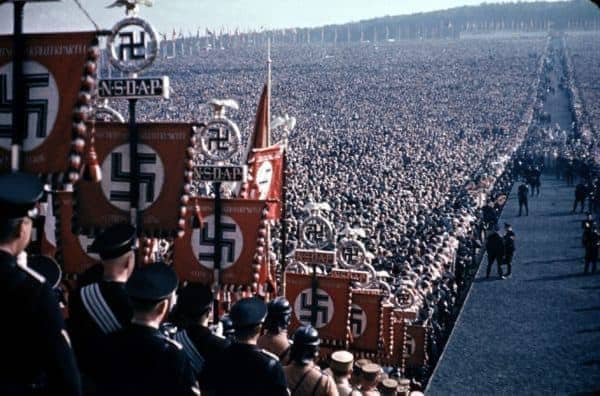The idea of a globalized economy is not unique. Overlapping money and territorial interests have been exploited for centuries. The intricate path of interconnectivity between countries is perhaps most evident after the Great Depression. Then, Russia was one of the few countries around the world not crippled by the tsunami of ruin that crushed the world from a storm that began in America after stock markets plummeted in 1929.
The connectivity of economies during the Second World War is less obvious, businesses were not vanishing. Instead, businesses were thriving. Coca-Cola, General Motors, Standard Old, and other U.S. businesses had reciprocal agreements in place that allowed Nazi Germany to flourish and American entrepreneurs to make landfall profits.
More astonishing than these agreements is that companies were not always held accountable for crimes — like treason — despite some practices that purposely stifled American efforts, before and after entering the war, in favor of the Nazi regime. Below are examples of some of those companies and how they practiced business during WWII.

General Motors
General Motors was more than present during the rule of the Third Reich; the company stands accused of having helped to mobilize the Reich. James Mooney, the President of GM’s overseas corporation, was swept up in the early political landscape during the time Hitler captivated the German people’s attention. Mooney forged a relationship with Hitler that gave him special access to events, which were consequently covered by the GM publication General Motor’s World. In the magazine, it was not unusual for several pages to feature Hitler as a magnanimous world leader.
It was not unusual for Mooney to meet with Hitler to discuss business. General Motors continues to deny the company had anything to do with the war, but it has been established that the American car manufacturer played an intricate and vital, if not necessary, role in the Third Reich’s ability to wage war on Europe. Despite the company’s claim that their ability control what happened overseas was limited, GM always had an American manager giving the Germans the go-ahead when the Third Reich wanted the company to go in new directions.
GM complied, for instance, when the Third Reich asked if they would convert their car making factory into a military production plant. Ethically this gets all the more complicated when considering the U.S. was hurriedly trying to manufacture their own military production lines. The consequences were seen on the front lines; by the time the U.S. entered the war, GIs landing in Normandy were driving the same cars and trucks as the enemy — but GM continues to claim they are not guilty of anything.
Opel, one of GM’s subsidiary plants in Europe, made warplanes. Both the Opel and GM factories in Europe during that time hda access to free labor during the war. Shortly after France was occupied, the fittest of the fit were forced to work. They were put on trains and shipped to Opel and GM plants. Young Russian women kidnapped from homes were taken to factories and forced to live and work there. Other times, prisoners were pulled from concentration camps and forced to work in manufacturing facilities.
The U.S. Army witnessed this firsthand when liberating factories. Over the years, General Motors continued to claim they had no idea how the factories were being used. This is astonishing, considering that as early as 1935, the company had made a deal with Hitler to open a new plant where the brand new “Blitz” truck would exclusively be produced, before being utilized for quick war attacks in Poland, Russia, and France.
According to GM, while in Germany, General Motors operated as if they were a German business. Their first priority was to make a profit. They had no interested in making political statements or taking a political stand. GM proved this was their belief even in the face of highly irregular circumstances. Putting money first, the company became a culpable partner in crime; supplying the Third Reich with natural resources vital to their war campaign, manufacturing their weapons of war, all the while never wavering from Hitler’s side.

